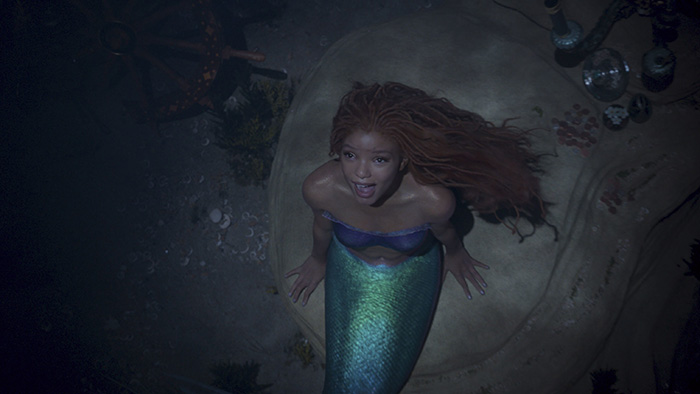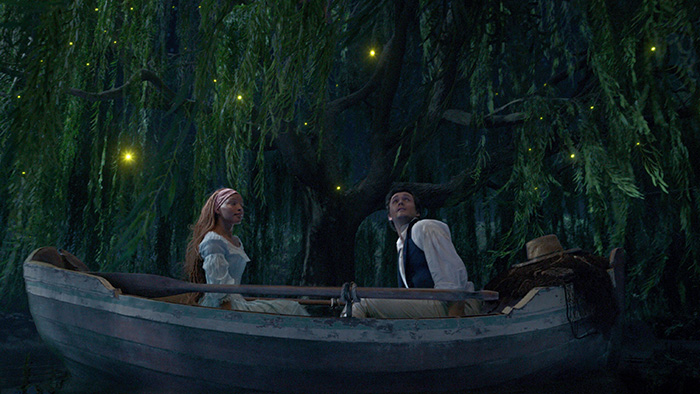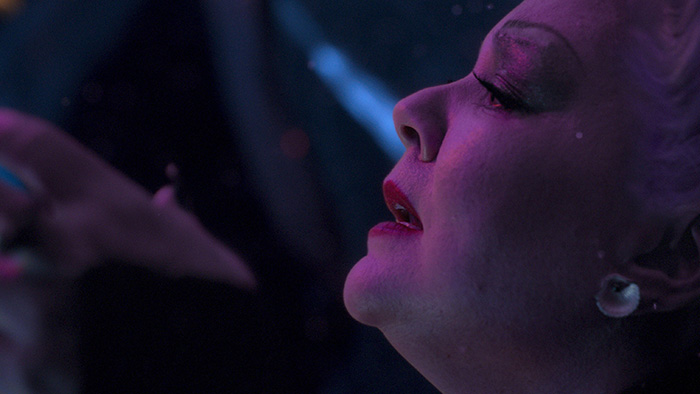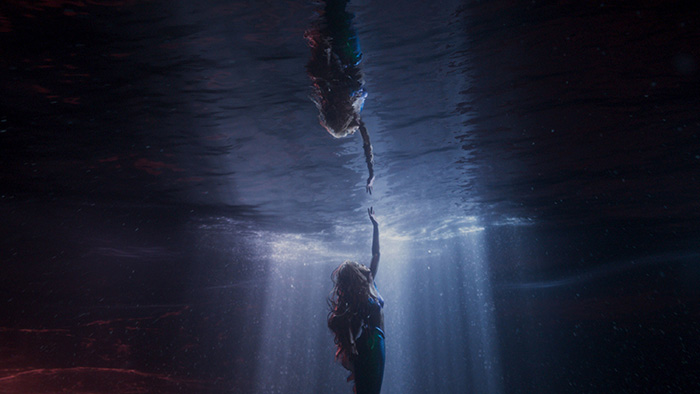If you’re not living under the sea, you would know that since the release of its casting, The Little Mermaid has been the center of discourse due to the casting of Halle Bailey.
Despite the lack of correlation of Ariel’s ethnicity to the plot, racist criticisms have flooded social media, ranging from arguments that it is scientifically impossible to have black mermaids to the lack of representation of white gingers on film and television.
In this sea of hate, Halle has received the support of social media users and her colleagues throughout the promotion. Upon the release of the trailer and soundtrack, critics have once again resurfaced to point out the “horrendous” CGI and lyric changes. While these poor unfortunate souls do not seem to run out of criticism, the highly-anticipated live-action remake of this Disney classic makes waves and reclaims their voice.
 Before proceeding with the article, please note that the following paragraphs contain spoilers for The Little Mermaid (2023).
Before proceeding with the article, please note that the following paragraphs contain spoilers for The Little Mermaid (2023).
More than just body language–It’s written in the stars
In the animated film, while “convincing” a worried Ariel on how to get the Prince to fall in love with her, Ursula sings her most prominent line in Poor Unfortunate Souls, “And don’t forget about body language.” While the said line has been eradicated from the live-action remake, the 2023 version of the Disney classic proves that there is more to romance than physical appearance.

In the 1989 version, Ariel’s initial fascination with the human world was not fully fleshed out and is overshadowed by her infatuation with the handsome Prince Eric, who she saves after a shipwreck; she even goes as far as fawning over Eric’s lifelike statue. This “love” led her to trade off her tail and voice for a pair of human legs so she could pursue her Prince. While the live-action remake retains some of this structure, we see that Ariel falls in love with the Prince not because of his physique but because they share the same desire for adventure and knowledge.
Ariel does not see Eric’s face at first, but she initially develops admiration as she listens to him narrate his desire to explore uncharted waters and his frustration that his duty as a prince and future king hinders him—something that Ariel resonates with. Before this encounter, King Triton reprimands Ariel’s inability to attend the council with her sisters and father, thereby forcing the King to remind her of her duties. In the live action, even as King Triton ruins Eric’s statue, Ariel holds the statue’s hand instead of his face.

When she becomes human, Eric and Ariel first bond in the former’s study, which resembles the latter’s grotto, while they examine his collection of trinkets he has gathered throughout his ventures—a hobby they both share. During this encounter, Eric spends the whole day discussing and teaching Ariel facts about the human world, which leads Eric to tour Ariel and they have a romantic adventure the following day. With these revisions, The Little Mermaid (2023) provides Ariel with redemption and shows that their love goes beyond the bounds of physical appearance. Aside from proving the pair’s compatibility, the live-action remake also detaches Ariel from the damsel in distress archetype. The most prominent example of which is the film’s climax wherein Ariel, instead of Eric, defeats Ursula and saves her father.
Ask the Girl: Tackling Consent
One of the most significant lyric changes from the original soundtrack comes from Kiss The Girl. In the 1989 lyrics, Sebastian sings “There is one way to ask her. It don’t take a word, not a single word, go on and kiss the girl.” The 2023 version changes this into “User your words, boy, and ask her. If the time is right and the time is tonight, go on and kiss the girl.”
As a film that will be predominantly watched by young girls, it is significant to emphasize the importance of consent. Regardless if you are on a romantic boat ride with your soulmate, it’s still necessary to ask for consent.
Visual Mishaps
From the fresh new music and the vibrant underwater scenes to Ursula’s terrifying transformation, The Little Mermaid retains the Disney magic. Despite the uproar over Flounder’s appearance, the CGI is not as horrible as people made it out to be. Although some visuals could be improved, The Little Mermaid found the middle ground between realism and fantasy.
In terms of the costume and makeup, Ursula’s makeup received flak from the audience, but with the dark lighting, the eyeshadow was not as noticeable. The live-action remake also did not feature some of Ariel’s prominent outfits such as the purple dress she wore after her transformation and the pink dress she wears during her dinner with Eric. Instead, she only wears her blue outfit throughout the film.
Although the film retained the enchanting original music with some spectacular yet subtle changes to the old lyrics, adding fresh musical numbers, and Halle Bailey enamoring the audience with her vocals, Awkwafina’s The Scuttlebutt is a miss. Despite capturing the essence of Scuttle, the song felt misplaced and does not emulate the sound and charm that other songs cohesively string together.
Should Disney still pursue live-action remakes?
Over the years, Disney has been criticized for continuously creating their live-action remakes. Aside from the heavy reliance on CGI, live-action remakes offer little to no innovations to the tales they originated from.
However, Disney is getting better at their approach to live-action. Disney’s strategy in live-action remakes is to use them to address plot holes. Much like the Beauty and the Beast live-action version instilling that the townspeople were bewitched, placing them in a time loop and making them forget about the castle and its inhabitants, The Little Mermaid also eradicates its biggest plot hole: Ariel’s ability to write. Instead of signing Ursula’s contract to signal her agreement, she takes a scale out of her tail. This way, Ariel can’t simply communicate with Eric through writing.
However, what makes Little Mermaid different than Beauty and the Beast is the leading actress’ performance. Unlike Emma Watson’s performance in Beauty and the Beast, Halle Bailey’s musical and acting performance shows she is the right fit to play the princess. Halle’s musical performances are not overshadowed by the other cast members, compared to Emma whose singing was auto-tuned, which became evident as she starred opposite acclaimed vocalists like Audra McDonald.
Another strategy Disney implemented is to offer protagonists some redemption. Like The Little Mermaid’s emphasis on Ariel’s desire to explore the above-world, Cinderella (2015) also highlights the protagonist’s wish for a fun night away from her stepmother and sisters and an even stronger desire for a happier life. Visually, Cinderella successfully emulated the Disney magic as it does not rely entirely rely on CGI.
Despite these minor strategies, the aforementioned remakes do not have the most compelling retelling plot-wise. The most innovative remake from the Disney Princesses franchise remains to be Maleficent—which ventures on the villain’s origin story rather than focalizing on the romantic storyline. Given these mishaps, we beg the question: Is it time for Disney to retire the live-action remakes? Perhaps, but it might not happen anytime soon. Despite the overwhelming review-bombing of the film, the Little Mermaid garnered $48.3 Million in profit, surpassing the 2019 remake of Aladdin.
Exceeding expectations
Despite its minor shortcomings, The Little Mermaid exceeds expectations and might be the best live-action remake that Disney has released. Halle Bailey is indeed otherworldly and successfully embodies Ariel’s essence. In every note she sings, even if it’s just as a backup vocal, Halle proves that she is one of the most poignant vocalists to ever grace the big screen. The ensemble had an amazing chemistry and together with Rob Marshall, they put together an ethereal retelling of Hans Christian Andersen’s tale.













